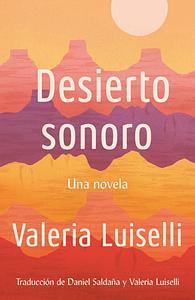Take a photo of a barcode or cover
reflective
sad
slow-paced
Plot or Character Driven:
Character
Strong character development:
No
Loveable characters:
Yes
Diverse cast of characters:
Yes
Flaws of characters a main focus:
Yes
challenging
dark
slow-paced
Plot or Character Driven:
Plot
Strong character development:
No
Loveable characters:
No
Diverse cast of characters:
No
Flaws of characters a main focus:
No
This isn't the type of book I typically would listen to as an audiobook, but I'm so glad I did. The sound effects used, the change of narrators, it all helped bring the story to life. I really appreciated how the book focused on one particular family who was going through their own travels and separations, and used that to delve into the hardships children detained at (or sent back from) the US border are facing. I felt a real connection to the children in the story, even if their given names were never mentioned, and just kept hoping their family could stay together.
I'd say this book was headed towards a 5 star, but things got confusing towards the end. In the audio version, the narrators were switching mid-sentence, and it became difficult to follow along what was the story about the main character children, or what was a story about the lost children (either from The Elegies of Lost Children, or the migrant children). It took me out of the book a bit at what was a more emotional part of the book, hence the deducted star. Still would definitely recommend though!
I'd say this book was headed towards a 5 star, but things got confusing towards the end. In the audio version, the narrators were switching mid-sentence, and it became difficult to follow along what was the story about the main character children, or what was a story about the lost children (either from The Elegies of Lost Children, or the migrant children). It took me out of the book a bit at what was a more emotional part of the book, hence the deducted star. Still would definitely recommend though!
challenging
emotional
sad
slow-paced
Plot or Character Driven:
Character
Strong character development:
Complicated
Loveable characters:
Yes
Diverse cast of characters:
Yes
Flaws of characters a main focus:
Yes
challenging
reflective
sad
medium-paced
Plot or Character Driven:
A mix
Strong character development:
Yes
Loveable characters:
Yes
Diverse cast of characters:
Yes
Flaws of characters a main focus:
Yes
dark
tense
slow-paced
Plot or Character Driven:
Plot
Strong character development:
No
Loveable characters:
No
Diverse cast of characters:
Complicated
Flaws of characters a main focus:
Yes
Hmm. This started interesting and read amazingly like a memoir while being a novel. And so unusual to make the parents professions audio recording professionals. But then the book got weird and slow and in the end nothing happened? What happened? We totally lost the story of the immigrant children? The story was told by one of the children and was any of it real? . Didn’t work for me.
Originally written for my newsletter The Cardigan Dispatch, tinyurl.com/cardigandispatch
Lost Children Archive by Valeria Luiselli is a novel that is both an intimate family portrait and a vast description of a continent’s struggle against the US government. Luiselli is an accomplished author who I first encountered reading her beautiful Tell Me How It Ends in a class on migration and education last semester. She is Mexican-American and has become an expert writer on the crisis at the US border.
I was going to write about another book this week, but then the border crisis reached another peak and I felt I had to write on this. For some background: here’s a Washington Post article from 2014, when Luiselli started this project. From this month, perspectives from Adam Serwer in The Atlantic on the historical president, and an interview in The New Yorker with a lawyer working in detention centers.
The premise of Lost Children Archive is a family road trip, in which two audio documentarians (or documentarists, Luiselli makes this distinction) and their children, each from previous marriages, drive from New York to Arizona. The wife—a nameless, semi-autobiographical Luiselli—is starting a new project on the quickening crisis of undocumented minors; her husband is starting a project on the Apache people. This family’s story is intertwined with stories of children riding la bestia, the dangerous train through Mexico and towards the harsh custody of Border Patrol.
Luiselli told a Guardian interviewer that she didn’t want to create “torture porn” and it’s clear that she struggles with the meaning of documentating other people’s exploitations. The novel includes Polaroid pictures (taken by Luiselli, fictionally taken by the husband’s 10-year-old son), maps, newspaper clippings, and quotes from works of literature. The wife/narrator and son/narrator, who share the bulk of the sections, both meditate on what it means to record and for whom, exactly, they are recording.
Luiselli’s struggle to document, to tell these stories that she readily admits are not hers to tell, manifests in the form of Lost Children Archive. The book has lengthy sections and “chapters,” the titles of which repeat frequently. The family’s boxes, packed in their trunk, serve as section dividers and in-text citations. Explicit references that would fit right into one of my literature seminars abound (Cormac McCarthy’s The Road makes frequent appearances, as does Lord of the Flies and Susan Sontag). As the novel progresses, perhaps unsurprisingly/slightly on the nose, the form breaks down and allusions (to Homer, Pound, and Woolf) become subtle. In short, borders become less meaningful.
Beyond the theme of documentation, Luiselli implicitly questions the reader “which children do you care about?” Liberal readers, me (and most of you) included, will protest that, of course, we care about all children equally. Luiselli challenges us when (I’m trying not to give things away here) she puts the children from the road-tripping family into a situation that mirrors those of migrant children riding la bestia. Of course we find this devastating, perhaps more devastating than the other stories we’ve read.
What is so profoundly disturbing about this novel is its closeness to reality — and to a reality that we don’t want to face. I’d like to take the end of this review to apologize to my family for coming to dinner crying after finishing this one.
Lost Children Archive by Valeria Luiselli is a novel that is both an intimate family portrait and a vast description of a continent’s struggle against the US government. Luiselli is an accomplished author who I first encountered reading her beautiful Tell Me How It Ends in a class on migration and education last semester. She is Mexican-American and has become an expert writer on the crisis at the US border.
I was going to write about another book this week, but then the border crisis reached another peak and I felt I had to write on this. For some background: here’s a Washington Post article from 2014, when Luiselli started this project. From this month, perspectives from Adam Serwer in The Atlantic on the historical president, and an interview in The New Yorker with a lawyer working in detention centers.
The premise of Lost Children Archive is a family road trip, in which two audio documentarians (or documentarists, Luiselli makes this distinction) and their children, each from previous marriages, drive from New York to Arizona. The wife—a nameless, semi-autobiographical Luiselli—is starting a new project on the quickening crisis of undocumented minors; her husband is starting a project on the Apache people. This family’s story is intertwined with stories of children riding la bestia, the dangerous train through Mexico and towards the harsh custody of Border Patrol.
Luiselli told a Guardian interviewer that she didn’t want to create “torture porn” and it’s clear that she struggles with the meaning of documentating other people’s exploitations. The novel includes Polaroid pictures (taken by Luiselli, fictionally taken by the husband’s 10-year-old son), maps, newspaper clippings, and quotes from works of literature. The wife/narrator and son/narrator, who share the bulk of the sections, both meditate on what it means to record and for whom, exactly, they are recording.
Luiselli’s struggle to document, to tell these stories that she readily admits are not hers to tell, manifests in the form of Lost Children Archive. The book has lengthy sections and “chapters,” the titles of which repeat frequently. The family’s boxes, packed in their trunk, serve as section dividers and in-text citations. Explicit references that would fit right into one of my literature seminars abound (Cormac McCarthy’s The Road makes frequent appearances, as does Lord of the Flies and Susan Sontag). As the novel progresses, perhaps unsurprisingly/slightly on the nose, the form breaks down and allusions (to Homer, Pound, and Woolf) become subtle. In short, borders become less meaningful.
Beyond the theme of documentation, Luiselli implicitly questions the reader “which children do you care about?” Liberal readers, me (and most of you) included, will protest that, of course, we care about all children equally. Luiselli challenges us when (I’m trying not to give things away here) she puts the children from the road-tripping family into a situation that mirrors those of migrant children riding la bestia. Of course we find this devastating, perhaps more devastating than the other stories we’ve read.
What is so profoundly disturbing about this novel is its closeness to reality — and to a reality that we don’t want to face. I’d like to take the end of this review to apologize to my family for coming to dinner crying after finishing this one.
adventurous
emotional
reflective
slow-paced
Plot or Character Driven:
A mix
Strong character development:
Complicated
Loveable characters:
No
Diverse cast of characters:
Yes
Flaws of characters a main focus:
Yes







